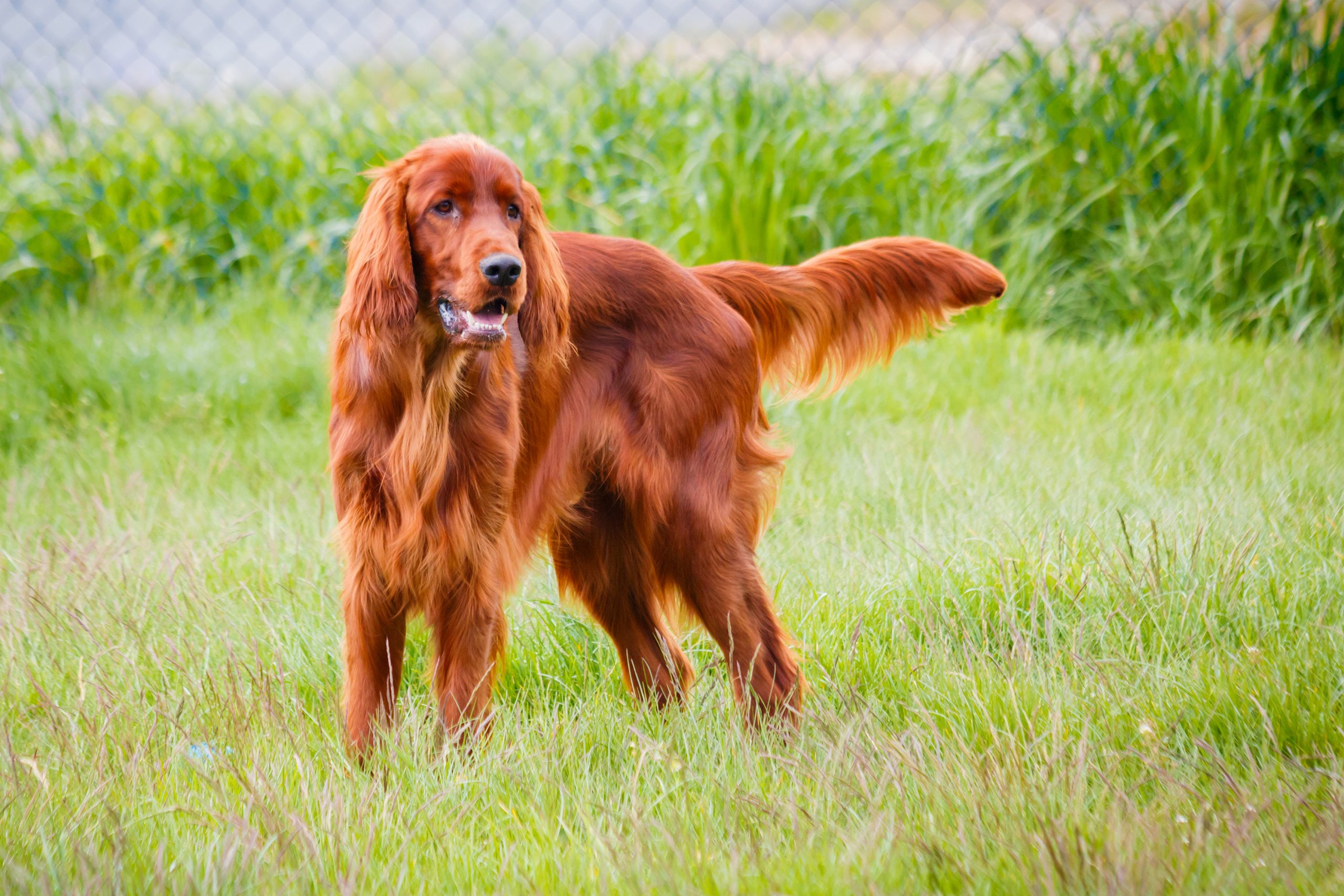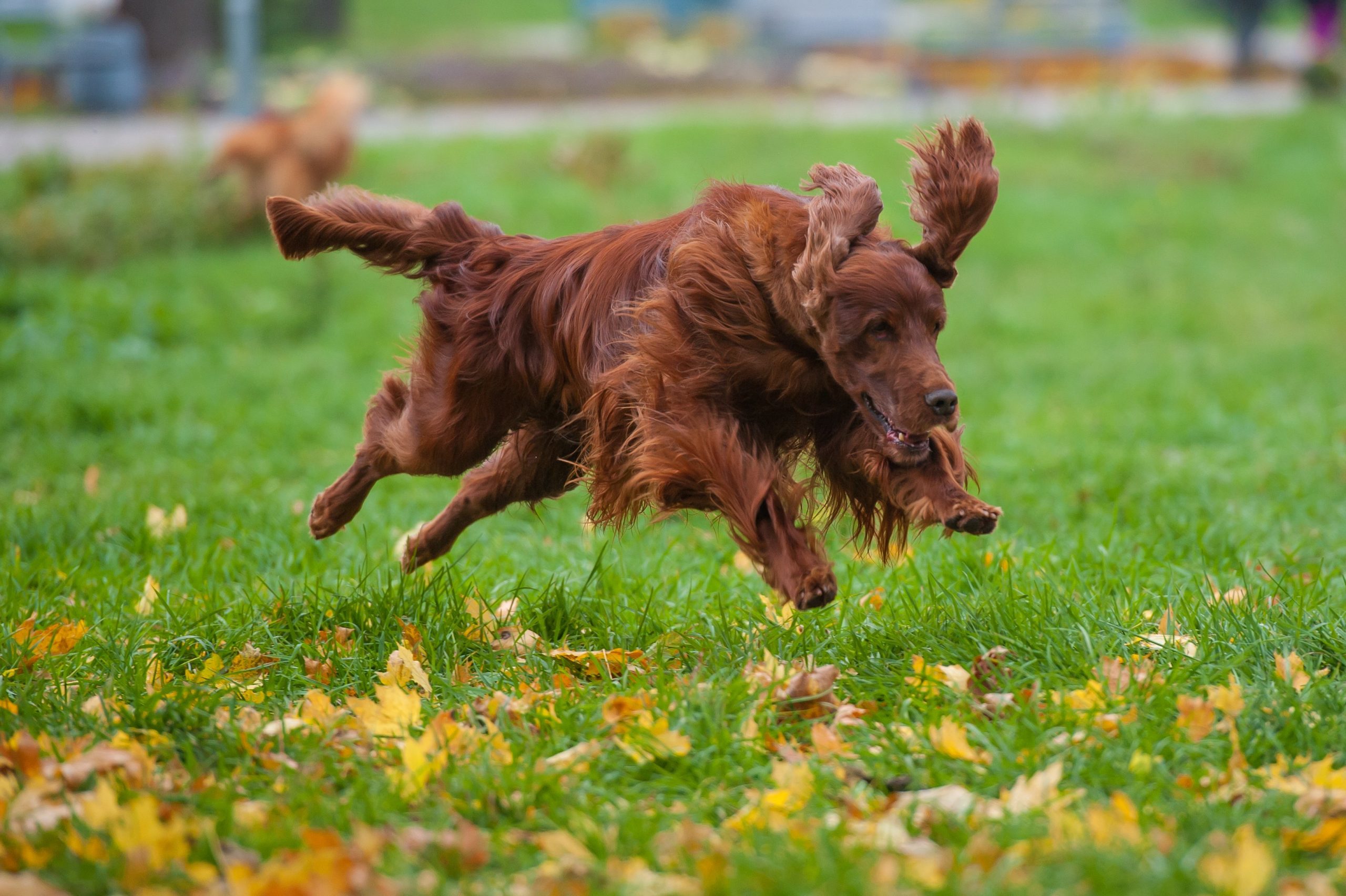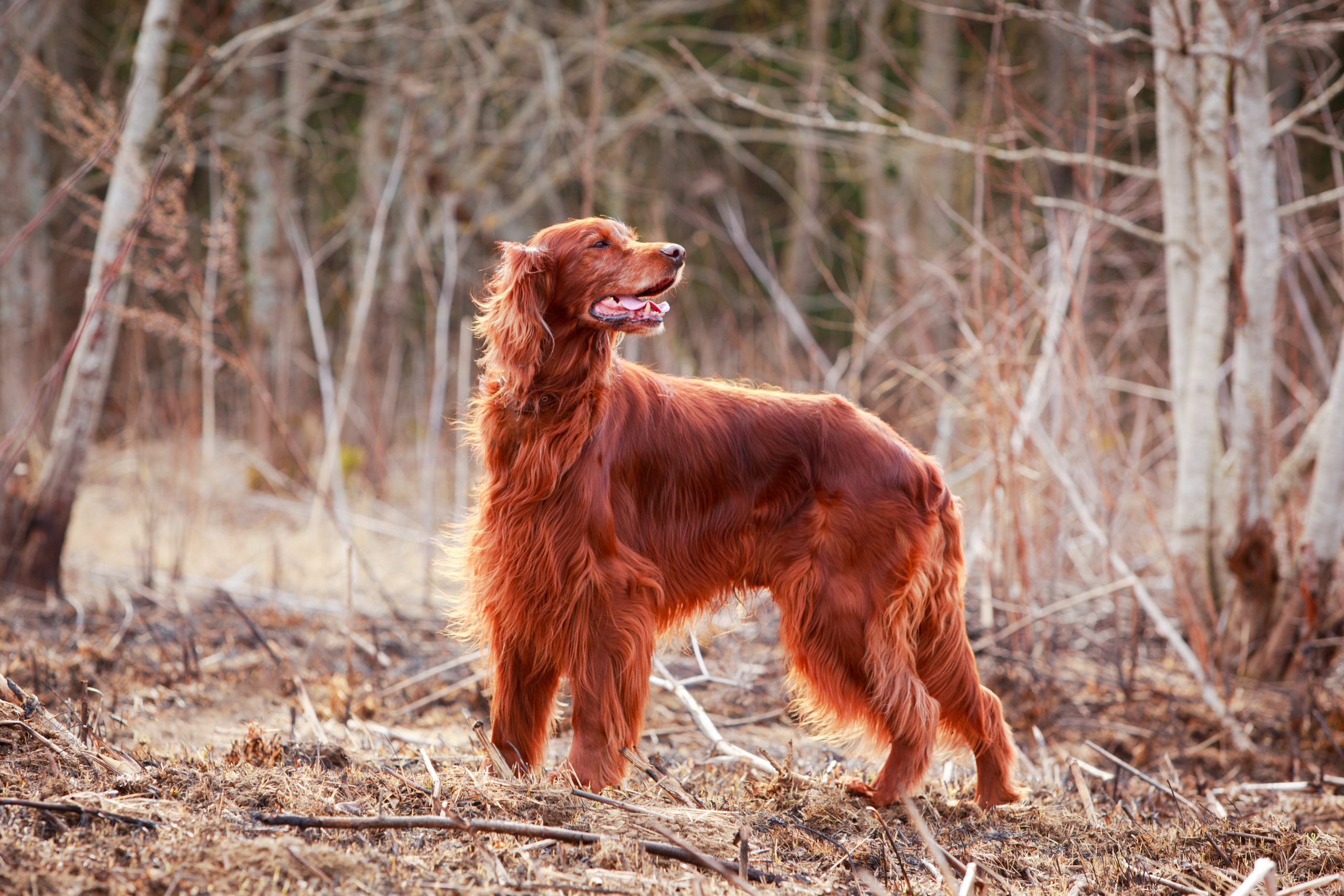Irish Setter
Showing the single result
Shelter Dog Meal Donation Count:
Showing the single result
The Irish Setter is a vivacious and affectionate breed that makes a wonderful companion for active individuals and families. Their intelligence, friendliness, and energy require engagement and space to roam, but for the right owner, they offer boundless love and joy. Regular grooming and exercise are essential to keep this breed healthy and happy.
The Irish Setter is a lively and energetic breed, initially bred for hunting, particularly for setting or locating gamebirds. They are known for their excellent sense of smell and boundless energy.

Originating in Ireland in the 18th century, Irish Setters were bred from a mix of breeds, possibly including English Setters, Spaniels, and Pointers. They were initially bred for their field abilities, with their stunning red coat becoming prominent later.




Prone to hip dysplasia, bloat (gastric torsion), and ear infections. Regular health screenings and check-ups are recommended.
Requires regular brushing to prevent matting in their long, silky coat. Regular ear cleaning is necessary to prevent infections, given their long ears.
High exercise needs; require ample daily physical activity and mental stimulation. It is ideal for active families or individuals who enjoy outdoor activities.
Though they are intelligent and responsive to training, they can be easily distracted. Consistency and positive reinforcement techniques are adequate. Early socialization is vital for well-rounded behavior.
Requires a balanced diet appropriate for a large, active breed. Careful monitoring of food intake and meal schedules is essential to prevent bloat and maintain a healthy weight.
Caring for an Irish Setter involves meeting their high exercise, grooming, and social needs. They thrive in environments where they can participate in family activities. With proper care, including regular veterinary visits, suitable nutrition, and sufficient exercise, Irish settlers make enthusiastic and affectionate companions.
Irish Setters, known for their beautiful red coats and playful nature, are generally healthy, but like all breeds, they have predispositions to specific health issues. Awareness of these conditions and conducting recommended tests can help maintain their health.
Understanding these common health issues and adhering to the recommended tests and preventive care guidelines can help ensure an Irish Setter's long, healthy life. Collaboration with a veterinarian is critical to developing a health care plan tailored to your dog's needs.
The iHeartDogs Free Rx Discount Card Program is a pet prescription discount card that can help you save money on your furry friend’s medications. The card is free to sign up for, and you can use it at participating pharmacies nationwide. To use the free program, simply show the card to your pharmacist when you pick up your pet’s prescription. The pharmacist will then scan the card, and you will receive a discount on the price of the medication.LEARN MORE
Caring for an Irish Setter involves various expenses, which can vary depending on location, the dog’s age, health, and personal care choices. Here’s a breakdown of typical expenses:
Total Estimated Annual Cost:
$2850 - $7000
It's important to note that these figures are estimates and can vary. Also, the first year of owning a dog can be more expensive due to one-time costs like spaying/neutering, initial vaccinations, and training. Regular budgeting for your dog's needs and an emergency fund for unforeseen costs are essential for responsible pet ownership.